From Miami Herald
Walk any mall and stores scream out to you: Buy me, I’m pretty, I’m cheap, buy more, of course you need that ninth pair of sneakers. A Miami fashion entrepreneur believes consumers are ready for something different.
Next month, a large store selling only sustainable fashion and beauty brands is set to open in Little Haiti.
At Pivot Mkt, you will find 20 mini-stores within the store, in an open-concept setting, each telling the story of a fashion brand. Some will feature clothing made from sustainable fabrics, such as “leather” made from pineapple waste. Others will feature upcycled fashions, giving new life to recycled textiles — and keeping them out of landfills. Handmade clothing and accessories by artisans from around the world — who are paid ethical wages and don’t work in sweat shops —will be featured too.
“There is hunger from the part of the consumer to know more about sustainability. Our mission is to educate about it, and the reception has been unbelievable,” says Alvaro De Jesus, who co-founded Nomad Tribe with Valeria Savino. Nomad Tribe is developing Pivot Mkt.
The time is right, De Jesus believes. “You see pressure being put on fashion brands to realize that there is this market you can’t ignore and that they need to change the way they do business.”
According to the United Nations, the fashion industry is the world’s second-largest polluter, after the oil industry. Many experts, including the UN, believe the industry’s prevalent “fast fashion” trend (cheap goods lead to more buying and more waste) is responsible for a plethora of negative economic and environmental impacts. The UN found:
▪ Clothing and footwear production causes 8% of global greenhouse gas emissions. The industry generates more carbon emissions than all international flights and maritime shipping combined.
▪ The fashion industry uses about 23.5 trillion gallons of water annually, enough to meet the needs of five million people. Half a million tons of microfiber from the industry are dumped into the ocean annually. The fashion industry produces 20 percent of global wastewater.
▪ The global fashion industry loses about $500 billion of value every year due to the lack of recycling and clothes that are thrown into landfills before ever being sold.
Producers and brands are slowly waking up to the idea that the industry needs to change. Adidas recently announced it will be unleashing a line of sneakers made entirely from recycled plastics and pledges to be using recycled polyester entirely by 2024. Outdoor clothing company Patagonia produces jackets using polyester from recycled bottles. Jeans manufacturer Guess is expanding its wardrobe recycling program globally. Even fast-fashion giant H&M is taking baby steps with a sustainable line and a garment collection program.
The parent company of global fast fashion retailer Zara recently announced that by 2025 all cotton, linen and polyester used by Zara will be organic, sustainable or recycled.
Miami loves its fashion shows, and prominent designers are showing how sustainability can be done. Nomad Tribe’s recent popup exhibit in Little Haiti featured an array of sustainable fashions by designers including Oscar Carvallo, Viviana Gabeiras, and Agatha Ruiz De La Prada. It was curated by The UpCycle Project, whose founder, Gabriella Smith, has been promoting sustainable fashion locally and all over the world through events, workshops and fashion challenges. Sustainable fashion exhibitions also popped up for Art Week and have been a staple of Miami Fashion Week the past several years in partnership with Miami Dade College’s Miami Fashion Institute. Last month’s Paraiso Miami Beach (Swim Week) featured some sustainable swimwear fashion, emerging sustainable designers in an UpCycle Project challenge, and a benefit for ocean conservation.
Smith focuses The Upcycle Project on textile waste and recycling, including working with local schools on the recycling of kids’ school uniforms into yarns for reuse. Creating promotional T-shirts, hats and canvas bags from recycled bed sheets and towels from the hospitality industry is another ongoing project. “Circularity is super important,” Smith says.
Smith and local emerging designers creating environmentally-conscious businesses promote “slow fashion.” Virginie Fallon Romier of Sea Jasper, for instance, weaves dresses from yarns from recycled t-shirts, and she is soon releasing jackets made from recycled jeans. The Onikas produces its own textiles made by artisans in India and Ecuador. Miami shops with curated sustainable collections include Antidote and Reformation.
Fashion designer Annette Felder and her twin sister Daniela converted their global brand Felder Felder to a sustainable one several years ago.
“Now it is very trendy as you know, but five or six years ago, it was very new and abstract. The city girls would think that’s nice you are doing something for the environment or the animals. But it was still very detached from fashion and style. It still had that tree-hugger rap at the time,” said Annette, who moved to Miami from London about four years ago.
“We did winter coats with them and for this winter we have a another winter coat and a pair of vegan sneakers, which uses the pinatex material [derived from pineapple waste], because we love those sneakers just like any other girl but it is very hard to find ones that are vegan and sustainable,” Annette said.
For Art Week last year, the Felder sisters co-hosted an event with Plant the Future, a Wynwood company focused on sustainable practices. There they showcased the fashions of seven sustainable designers.
“It’s fantastic and exciting to be part of the development of the city,” said Annette, adding that her sister travels here often and plans to relocate. “We choose to communicate through beauty. And when it has a story behind it has more impact. We live by the ocean and are faced with rising sea levels. Fashion is moving away from just resort and swimwear. Miami is a city that can stand for more than just that. People are excited because they can be part of something together.”
Local schools, universities and programs are doing their part to stoke the movement. Kids as young as 7 learn to make sustainable fashions — down to creating their own fabrics — at the privately run DesignLab Miami. Some DesignLab students go on to study at Design and Architecture Senior High (DASH), the well-regarded public high school that counts Felder and Smith as mentors and advisors. Miami Dade College’s young Miami Fashion Institute, with associate’s degree programs in fashion design and fashion merchandising, has graduated two classes already, and a third is underway. MFI also participated in Miami Fashion Week, bringing global brands here for a sustainability program as well as sending some of its students’ fashions down the runway.
Ana Dalessio was one of them. She showcased four pieces from her sustainable collection at Miami Fashion Week this summer.
“The collection I presented was a study in what we leave behind. It is a study of waste on a small scale — food wrappers, plastic grocery bags —and how it creates this eerily beautiful representation of our relationship with the natural world,” said Dalessio, who graduated from MFI in May in the fashion design track and is doing freelance designing for clients.
“My collection featured prints I designed from photos of trash and litter that I manipulated into digital artwork. The rest of the material was scrap material, donated deadstock, fabric that would have been thrown away otherwise.”
Miami Dade College’s MFI stresses “green” practices in all its classes and provides fabric recycling bins for students to use in their designs, said Dalessio, adding that her own closet is 90 percent thrifted. “You can find things way more unique than in the mall and you are saving things from going into a landfill.”
“We are becoming more conscious as an industry, but we have a long way to go,” she said. “I find it really important to reduce my footprint.”
Millennials like Dalessio are living what they believe in and are changing industries, said Bob Hacker, a professor of social entrepreneurship and director of StartUP FIU who has advised local entrepreneurs in sustainable fashion. “I think there is a huge unmet in recyclable fashion in the sense that everyone needs clothing and wants to be more environmental responsible.”
That’s good for business too.
Take Nomad Tribe. The company was founded in mid-2015, with the help of about $200,000 from investors “who have played a key role in supporting the team and taking risks with us,” De Jesus said. Although the company continues to reinvest profits into the business, the brick and mortar operations the company opened in 2015 are profitable. On the sales side, he said, “we went from 0 to the mid hundred thousands the very first year and have steadily grown every year since then.”
Meanwhile, work is progressing for the opening of Pivot Mkt, located inside the Citadel in Miami’s Little Haiti. Pivot will feature about 20 brands to start, including locally owned Sea Jasper, Sundays, which makes clothing from natural linens, nightwear brand Half Asleep, and its own brand of upcycled artisan-made clothing. Global companies such as Caralarga of Mexico will also be represented. Each year, Pivot will include the collection of an MFI design student chosen through an annual contest.
In addition to the store, there will be a learning center, with workshops, art installations and live presentations and a recycling center all brands can use. Later, Nomad Tribe plans to add a customization station to make sustainable items even more personal.
For the companies, Pivot will offer full service, including staffing of their mini-stores, inventory management and sales analytics. “We want to empower other brands by running their brick and mortar,” De Jesus said.
“We’ve been there — we created a label and ran a brick and mortar at the same time and it takes a lot of energy to do both. We wanted to make it as seamless as possible for other brands so they can focus on everything else in order to grow their brands and make a difference.”

